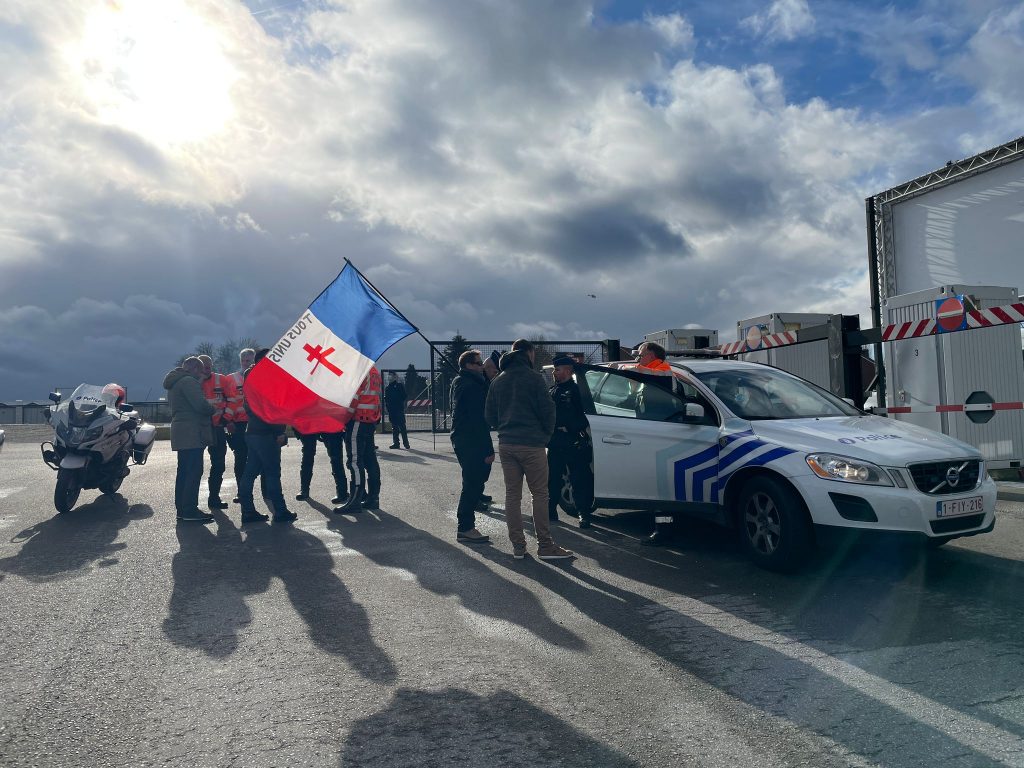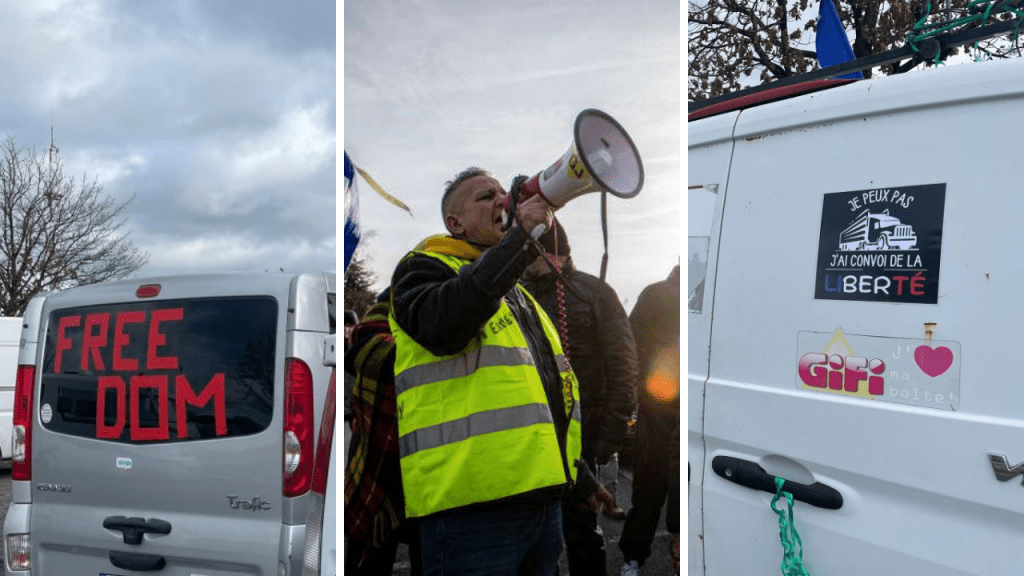Roses are red and violets are blue but nothing says "I love you" like a convoy of disgruntled truckers laying siege to the city. It may not be the classic Valentine's celebration but an unknown number of self-styled freedom fighters have picked today to descend on Brussels and effectively hold the capital hostage by blocking its main arteries.
Besides the disruption and a loud statement of discontent, exactly what the protesters expect to achieve is hard to pin down. What started in Canada as a protest against coronavirus restrictions has now inspired similar insurrections in the United States and Australia. And though some protesters have found their message falls on sympathetic ears, many residents of cities targeted by the "freedom convoys" are more annoyed by the nuisance.
Certainly, with Belgium announcing that the majority of its stricter measures will be relaxed this coming Friday, one assumes that whatever latent support the protest might have received from the wider public has largely dissipated. Add to this the travel delays and a general Monday morning impatience and it seems hard to see how any but the most fervent anti-vaxxers could look kindly on the convoy.
So far the authorities have taken strong precautionary measures to prevent the city from being paralysed: the demonstration has been banned and police are conducting searches. Those vehicles that are part of the movement are being directed away from the city centre towards a large parking lot.
My colleague @itsHelenLyons was on the ground speaking to protesters, many of whom have come from France where large crowds gathered in Paris on Saturday. However, the diversity of discontent – not only criticism of Covid measures but also 5G and general anti-establishment sentiment – makes it difficult to establish a clear cause for the unrest.
Have you been affected by the disruptions? Let @Orlando_tbt know.
BUT WAIT, one last thing: Want news from The Brussels Times in your inbox every morning? Sign up for The Recap, a free daily newsletter containing all the top stories from the day before. Perfect with your morning coffee.
Belgium in Brief is a free daily roundup of the top stories to get you through your lunch break conversations. To receive it straight to your inbox every day, sign up below:
1. Belgium switches to ‘code orange’ from 18 February
Having started in the strictest red phase of its coronavirus barometer, the Consultative Committee has now decided that Belgium will move to ‘code orange.' Read more.
2. ‘We are the EU and we are here’: Freedom Convoy arrives in Brussels

At least 40 vehicles have gathered at the Brussels Expo in a protest against coronavirus measures that mirrors the “Freedom Convoy” taking place in Canada, which has suffered a severe economic blow by the barricading of major trade routes. Read more.
3. Scourge of the streets: Brussels to introduce measures to curb scooter misuse
Their ease of use and low fares have made shared scooters, bikes and motorcycles a hit with users but these convenient alternatives to public transport or cars have been causing headaches in Brussels with constant issues related to speeding and unregulated parking. Read more.
4. Brussels light festival attracts 300,000 visitors
The sixth edition of the Bright Brussels festival closed this Sunday evening after being attended by around 300,000 people, the regional tourism agency Visit.brussels announced early Sunday evening. Read more.
5. Solution for Métis children without birth certificates after 60 years
After 60 years, Belgium has approved a solution for Métis people born to a Belgian man and an African mother under colonialism who never owned a recognised birth certificate. Read more.
6. Search for missing girl in Peru abandoned due to ‘lack of support’
The search for young Belgian tourist Natacha de Crombrugghe, who has been missing in Peru for three weeks, has reportedly been abandoned due to a lack of support from local authorities. Read more.
7. Hidden Belgium: The gunshot that ended a love affair
A lace shop in downtown Brussels stands on the site of the hotel where the poet Arthur Rimbaud stayed in 1873. Read more.

